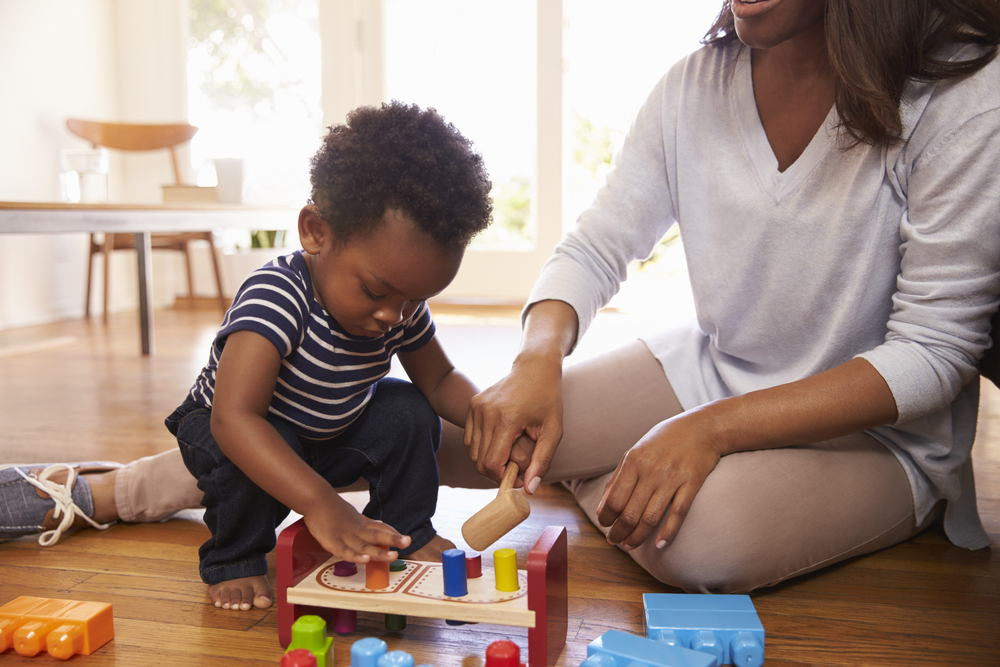A Case Study: TV was the Problem All Along
Feb 14, 2022 According to a Harvard Medical school study, the most important variables in child's screen use are duration of the session, the input/participation of parents, the activity, and how passive the user is. Read this SLP case study, and set the proper screen time limits for your child!
In March 2019, I received a referral for a three-year-old boy. His teacher was concerned with his speech and language development. I spoke to his mother, and she had also noticed that his speech wasn’t entirely age-appropriate when he was two. She’d made some inquiries and was told that he would grow out of it. Unfortunately, he didn’t grow out of it, and his difficulties with speech and language worsened.
When I assessed this boy, I immediately noticed that he had severe difficulties with his speech. He spoke with poor voice quality and volume with minimal breath support despite having no abnormalities in the structures used to produce speech. This negatively affected his ability to articulate speech sounds and be understood.
In looking at his language development, I determined that there was a delay in both his receptive and expressive language. He even had difficulties making inferences and using language appropriately in social situations despite having normal hearing and no other obvious developmental delays.
When I met with his mother to discuss the assessment, she revealed that the most frustrating aspects of his communication difficulty was his inability to follow directions and his very limited vocabulary, which prompted him to lash out when he wasn’t understood. She was at a loss. His birth history, medical history, and family history were all normal, and she couldn’t understand what had caused this speech and language delay.
The Problem
The revelation came when I asked her about her son’s daily routine. She indicated that he watched approximately three hours of television a day after school and would sometimes go to bed as late as ten o’clock in the evening. Immediately, I knew that this was most likely the cause of all the trouble.
As part of his therapy program, I instructed his mother not to let him watch any TV during the week and to use that time doing developmental speech and language activities. We noticed marked improvement after one month, and astounding improvement after three months. By the end of the year, his speech and language development improved to an age-appropriate level, and he finished his speech therapy.
Structured Screen Time with Speech Blubs
You can download our Speech Blubs app and use structured screen time to work on some of our fantastic communication-centered activities.
Boost Your Child’s Speech Development!
Improve language & communication skills with fun learning!

Unstructured Screen Time is Detrimental to Your Child’s Speech and Language Development

This case really drove home the negative impact that unstructured screen time can have on a child’s speech and language development. The truth is that children learn to talk and communicate through face-to-face interaction, and TV is a very poor substitute for that.
There is a critical period in which your child acquires speech and language, and too much unstructured screen time is incredibly detrimental to this development. Your child’s brain is most receptive to learning speech and language, and building communication pathways during this time. It’s much more difficult to learn and develop speech and language skills after this period. That’s why it is a very serious issue.
Don’t Believe Me? Here are Some Study Findings
- There is a link between unstructured screen time and delayed speech and language development in children.
- Children who spend more unstructured time with screens do worse on tests of speech and language development.
- Excessive unstructured screen time hurts children’s ability to develop speech and language optimally.
- In addition to speech and language problems, there is a direct link between unstructured screen time and attention problems, short-term memory problems, and reading problems.
What Do I Mean by ‘Unstructured Screen Time’?
Because of the detrimental effects of unstructured screen time, there is a misconception that all screen time is bad. This isn’t true. Unstructured screen time is when your child sits in front of the TV and watches passively.
Structured screen time, however, is when both you and your child actively use screen time together to do educational and developmental activities.
Using the Speech Blubs app is an example of structured screen time. Structured screen time is good for your child and their development. Unstructured screen time is not.
Unstructured Screen Time Alternatives

There are plenty of alternatives to unstructured screen time that are better for your child’s development, and which aid in its continued development.
You can do the following:
- Talk with your child using open-ended questions which prompt them to say more than one word at a time
- Sing songs and nursery rhymes
- Go to the library and choose books to read
- Read the books you choose
- Do activities outside such as gardening
- Build puzzles
- Color in pictures
- Play “make-believe” using your child’s toys
- Cook or bake something together
- Have a play date with a friend or two
- Do arts and crafts like making finger puppets
- Go to indoor fun parks
- Go for walks and play, “I spy.”
- Ride bikes or a similar physical activity
- Go to the park and walk your dog if you have one
- Play on outside playgrounds or in the park
- Play board games
